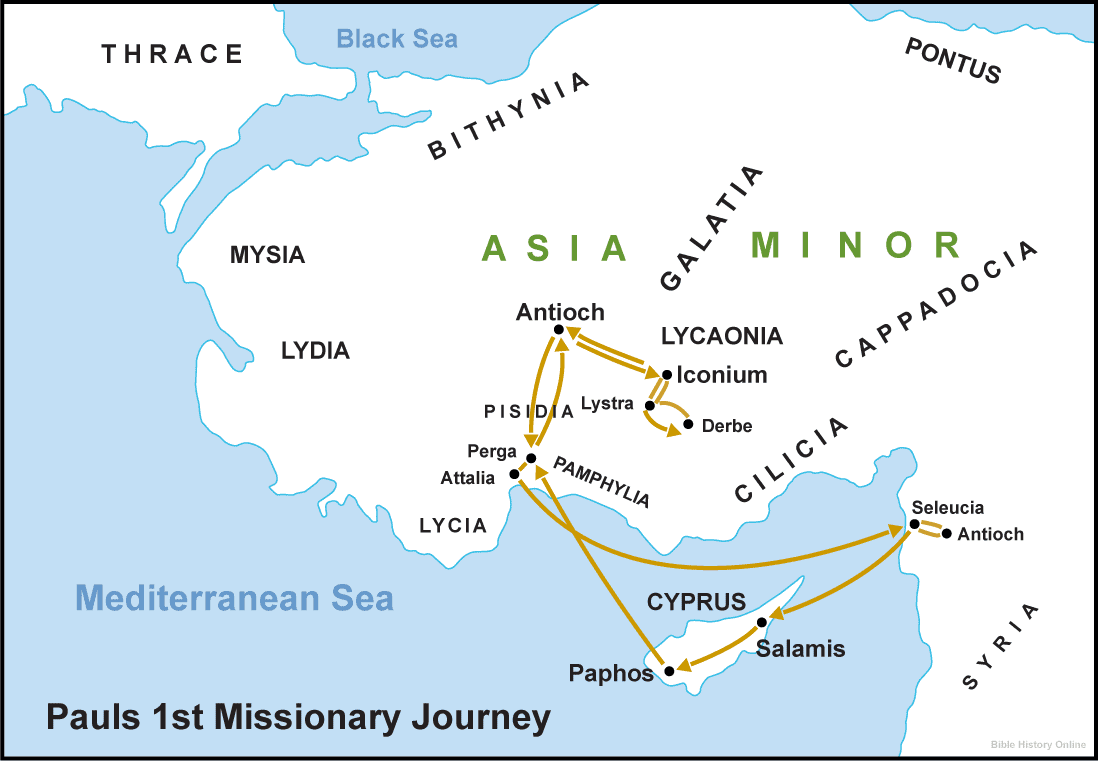Father: (not stated)
Mother: Mary
Brother: James ("the younger")
Cousin: John/Mark
One of several males named Joseph, the following statement spoke well of the character of the person called Barnabas in the Bible.
This also made him easier to distinguish from the others with the same name. Acts 4:36-37:
36. Joseph, a Levite from Cyprus, whom the apostles called Barnabas (which means Son of Encouragement),
37. sold a field he owned and brought the money and put it at the apostles' feet.
Barnabas took Saul to the apostles after his conversion on the road to Damascus -
Acts 9:27.
He became part of the spread of Christianity, traveling to Antioch (probably in Syria) -
Acts 11. Acts 11:22-26 said:
22. News of this reached the ears of the church at Jerusalem, and they sent Barnabas to Antioch.
23. When he arrived and saw the evidence of the grace of God, he was glad and encouraged them all to remain true to the Lord with all their hearts.
24. He was a good man, full of the Holy Spirit and faith, and a great number of people were brought to the Lord.
25. Then Barnabas went to Tarsus to look for Saul,
26. and when he found him, he brought him to Antioch. So for a whole year Barnabas and Saul met with the church and taught great numbers of people. The disciples were called Christians first at Antioch.

Saul and Barnabas returned from Jerusalem after Peter was miraculously released from prison and Herod died - Acts 12:25. Both of them led more people (both Jews and Gentiles) to Christ in Acts 13 on Cyprus then in Asia Minor (modern-day Turkey). In Iconium, Barnabas and Saul were mistaken for gods by Greeks in the town after Paul (Saul) healed a lame man crippled from birth - Acts 14. They traveled back to Antioch where they had a dispute with Jews who were upset that Gentiles were also being converted to Christianity. Barnabus returned to Cyprus with John (Mark).
Barnabas was respected for working to pay for his expenses as he preached (compared to the Levite priests) - 1 Corinthians 9:6.
Paul confronted the Jews who favored their own kind, stating that Jesus died for all. He stated that even Barnabas had fallen for this mentality - Galatians 2.
In Colossians 4:10, it became apparent why Barnabas chose to travel with Mark at the end of Acts - because he was Mark's cousin.
Some research was needed to determine Barnabus' mother's name which was possible by looking over the occurrences of Joses. In the King James version, Joses showed up in Matthew 13:55,
Mark 6:3 and Acts 4:36, then appears in both King James and NIV in
Matthew 27:56 after Jesus' crucifixion, then again in Mark 15 verses 39 and 46 after Jesus died.
Mark 15:38-46 stated:
38. And when the centurion, who stood there in front of Jesus, heard his cry and saw how he died, he said, "Surely this man was the Son of God!"
39. Some women were watching from a distance. Among them were Mary Magdalene, Mary the mother of James the younger and of Joses, and Salome.
40. In Galilee these women had followed him and cared for his needs. Many other women who had come up with him to Jerusalem were also there.
41. It was Preparation Day (that is, the day before the Sabbath). So as evening approached,
42. Joseph of Arimathea, a prominent member of the Council, who was himself waiting for the kingdom of God, went boldly to Pilate and asked for Jesus' body.
43. Pilate was surprised to hear that he was already dead. Summoning the centurion, he asked him if Jesus had already died.
44. When he learned from the centurion that it was so, he gave the body to Joseph.
45. So Joseph bought some linen cloth, took down the body, wrapped it in the linen, and placed it in a tomb cut out of rock. Then he rolled a stone against the entrance of the tomb.
46. Mary Magdalene and Mary the mother of Joses saw where he was laid.